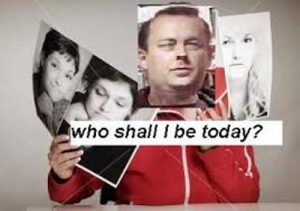Dissociative identity disorder (DID), formerly named Multiple Personality Disorder (MPD), is a unique and highly specialized ability of the mind wherein certain conditions, aspects of experience and memory are separated from each
 other and form separate consciousness. It is one of the most fascinating enigmas in psychology, but throughout history, it has not been without controversy. Today there is an increasing amount of research literature that is uncovering the underlying etiology and mechanisms involved in DID. However, there is still a lot unknown about the functions of the cognitive processes, especially in the memory and attention areas of the human brain.
other and form separate consciousness. It is one of the most fascinating enigmas in psychology, but throughout history, it has not been without controversy. Today there is an increasing amount of research literature that is uncovering the underlying etiology and mechanisms involved in DID. However, there is still a lot unknown about the functions of the cognitive processes, especially in the memory and attention areas of the human brain.
Dissociate Identity Disorder is diagnosed when a person has two or more personalities operating. These fragmented personalities have the ability to control the person and make them do things that they do not remember or would normally not do. Often the person will not have any realization or knowledge that another personality is even present or operating. As more research is becoming available, it is showing that very often DID can be caused by early childhood sexual abuse, or other very traumatic events that are so intolerable that the person’s mind automatically and purposely forgets these events and develops another personality to remember the abuse.
No matter what the cause of the fragmenting of the human mind or DID is, whether it was sexual abuse or some other traumatizing event, life continues for those that survive the traumatic abuse. However, this unique ability of the mind to partition and fragment unfortunate life events does not work forever for some. Survivors very often experience life difficulties manifested in many forms, and when two or more personalities are operating and expressing themselves openly, this can make living a somewhat normal life problematic.
Often others will notice that things are not entirely right with people suffering from DID. The person may seem one way at times, and yet another way at another time without any consciousness this is going on. They may describe it as feelings, but more often than not, it can be those fragmented memories of certain events, and quite possibly an alternative personality manifesting in the present. When things begin to break down, and the system becomes over-loaded by those distinct and fragmented personalities, the person can become non-functional. That is when many seek help from the professional medical community, who, for the most part, have difficulty accurately understanding what is going on, let alone how to treat this disorder therapeutically.
As more information and understanding are becoming known about the conditions that cause dissociation, the psychological community is learning new ways to treat this complicated disorder. At the same time, some in the religious community are now becoming aware of the effects of trauma on the mind, and they too are attempting to help those that come seeking help from within the church. Even with all these advances, there is still room for both of these communities to come together since they are often treating the same patients.
 Since the earliest beliefs about DID were thought to be strictly spiritual, meaning it was believed to be demonic in nature, some in the religious community still believe that any splitting or manifesting of multiple personalities is rooted in the spirit realm. Their school of thought refuses to accept that it can be part of the human psyche, and so any psychological understanding is improper. While this could be partially true, those on the other side in the psychological community are doing just the opposite. Their school of thought believes that DID is strictly a psychological phenomenon, and thus, discount that there is any possibility of a spiritual aspect to the disorder. Both schools of thought have their particular ways of treating someone coming to them with what seems to be multiple personalities. This begs one to ask the question, which school of thinking is right, and which one is wrong. Certainly, they both cannot be right and wrong at the same time. However, what if both are right in their school of thinking, but not entirely correct in their approaches to treating this phenomenon? What if effectively treating an abused survivor, which resulted in dissociation requires a combining of both schools of thought and methods of treatment? If this were the case, then it would seem logical that the most effective way to treat someone with this disorder would be by using a holistic method that encompasses both schools of thought, and both methods of therapy.
Since the earliest beliefs about DID were thought to be strictly spiritual, meaning it was believed to be demonic in nature, some in the religious community still believe that any splitting or manifesting of multiple personalities is rooted in the spirit realm. Their school of thought refuses to accept that it can be part of the human psyche, and so any psychological understanding is improper. While this could be partially true, those on the other side in the psychological community are doing just the opposite. Their school of thought believes that DID is strictly a psychological phenomenon, and thus, discount that there is any possibility of a spiritual aspect to the disorder. Both schools of thought have their particular ways of treating someone coming to them with what seems to be multiple personalities. This begs one to ask the question, which school of thinking is right, and which one is wrong. Certainly, they both cannot be right and wrong at the same time. However, what if both are right in their school of thinking, but not entirely correct in their approaches to treating this phenomenon? What if effectively treating an abused survivor, which resulted in dissociation requires a combining of both schools of thought and methods of treatment? If this were the case, then it would seem logical that the most effective way to treat someone with this disorder would be by using a holistic method that encompasses both schools of thought, and both methods of therapy.
If you would like to learn more about the symptoms of DID, you can click here to read the most common indicators that dissociation may be present. You can also contact me to schedule a free consultation if you believe you may be experiencing dissociative symptoms.

